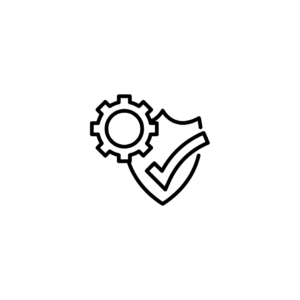Description
Course Details
Electronics Fundamentals: You’ll build a strong foundation in basic electronics concepts, including circuits, components, and electronic devices.
Industrial Automation: You’ll learn about programmable logic controllers (PLCs), sensors, actuators, and other automation technologies used in industries to control processes and machinery.
Control Systems: You’ll study the principles of control systems, including feedback control, process control, and motion control, which are essential for regulating industrial processes.
Instrumentation: You’ll gain knowledge of various instruments used in industries to measure and monitor process variables, such as temperature, pressure, flow, and level.
Power Electronics: You’ll learn about power electronic devices, such as rectifiers, inverters, and converters, which are used to control and convert electrical power in industrial applications.
Industrial Communication: You’ll study communication protocols and networks used in industries, such as industrial Ethernet, Profibus, and Modbus, which enable communication between devices and systems.
Maintenance and Troubleshooting: You’ll develop skills in troubleshooting and maintaining industrial electronic equipment, ensuring their proper operation and minimizing downtime.
Practical Training: Most B.Voc programs include internships or fieldwork in industries, providing hands-on experience in applying industrial electronics skills in real-world settings.
Career Opportunities
Industrial Electronics Technician: Install, maintain, and troubleshoot electronic equipment and systems in industries.
Automation Engineer: Design, implement, and maintain automation systems for industrial processes.
Control Systems Engineer: Develop and optimize control systems for industrial machinery and processes.
Instrumentation Technician: Install, calibrate, and maintain industrial instruments.
Maintenance Engineer: Oversee the maintenance of electronic equipment and systems in industries.
Project Engineer: Manage industrial electronics projects, ensuring their successful completion.
Sales and Service Engineer: Provide technical support and service for industrial electronic products.
Entrepreneur: Start your own business related to industrial automation, control systems, or instrumentation.
Choosing the Right Program
Curriculum: Does the program cover the specific areas of industrial electronics that interest you most, such as automation, control systems, or instrumentation?
Practical Training: Look for programs with strong emphasis on hands-on experience through internships or fieldwork in relevant industrial settings.
Faculty: Choose programs with experienced instructors who have expertise in industrial electronics.
Industry Connections: Consider programs with partnerships with industries that provide opportunities for internships or job placements.
A B.Voc in Industrial Electronics can lead to a rewarding career in various industries, including manufacturing, energy, transportation, and automation. If you have an interest in electronics and enjoy applying your knowledge to solve real-world problems in industrial settings, this could be a great career path for you.









